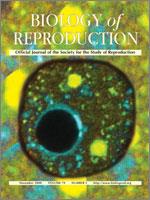Hypothalamic glutamate and gamma-aminobutyric acid (GABA) neurotransmission are involved in the ovarian hormone-induced GnRH-LH surge in rodents. We previously reported that middle-aged rats have significantly less glutamate release in the medial preoptic area than young rats on the day of the LH surge. The present study tested the hypothesis that the delayed and attenuated LH surge in ovariohysterectomized middle-aged rats primed with ovarian steroids results from reduced hypothalamic glutamate and increased GABAA neurotransmission. Microdialysis results show that middle-aged rats with attenuated LH surges had reduced extracellular glutamate and increased extracellular GABA levels in the medial preoptic area compared with young rats. Blocking GABAA receptors with bicuculline or inhibiting synaptic glutamate reuptake with l-trans-pyrrolidine-2,4-dicarboxylic acid increased extracellular Glu in the medial preoptic area and partially restored LH surge amplitude in middle-aged rats without altering LH surge onset. Complete recovery of LH surge amplitude was observed in middle-aged rats treated with the combination of bicuculline and l-trans-pyrrolidine-2,4-dicarboxylic acid. This treatment also restored the extracellular glutamate:GABA ratio in the medial preoptic area of middle-aged rats to the level of young rats. Immunoblot analysis revealed that estradiol and progesterone treatment reduced SLC32A1(formerly known as vesicular GABA transporter) levels and increased SLC17A6 (formerly known as vesicular glutamate transporter 2) levels in the anterior hypothalamus of ovariohysterectomized young but not middle-aged rats. These data suggest that both reduced availability of glutamate and increased activation of GABAA receptors under estrogen-positive feedback conditions contribute to the age-related delay in onset and attenuated amplitude of the LH surge..
How to translate text using browser tools
1 November 2008
Restoration of the Luteinizing Hormone Surge in Middle-Aged Female Rats by Altering the Balance of GABA and Glutamate Transmission in the Medial Preoptic Area
Genevieve S. Neal-Perry,
Gail D. Zeevalk,
Jun Shu,
Anne M. Etgen
ACCESS THE FULL ARTICLE

Biology of Reproduction
Vol. 79 • No. 5
November 2008
Vol. 79 • No. 5
November 2008
aging
estradiol
GABAA receptors
glutamate
gonadotropin-releasing hormone neurons
hypothalamus
luteinizing hormone




